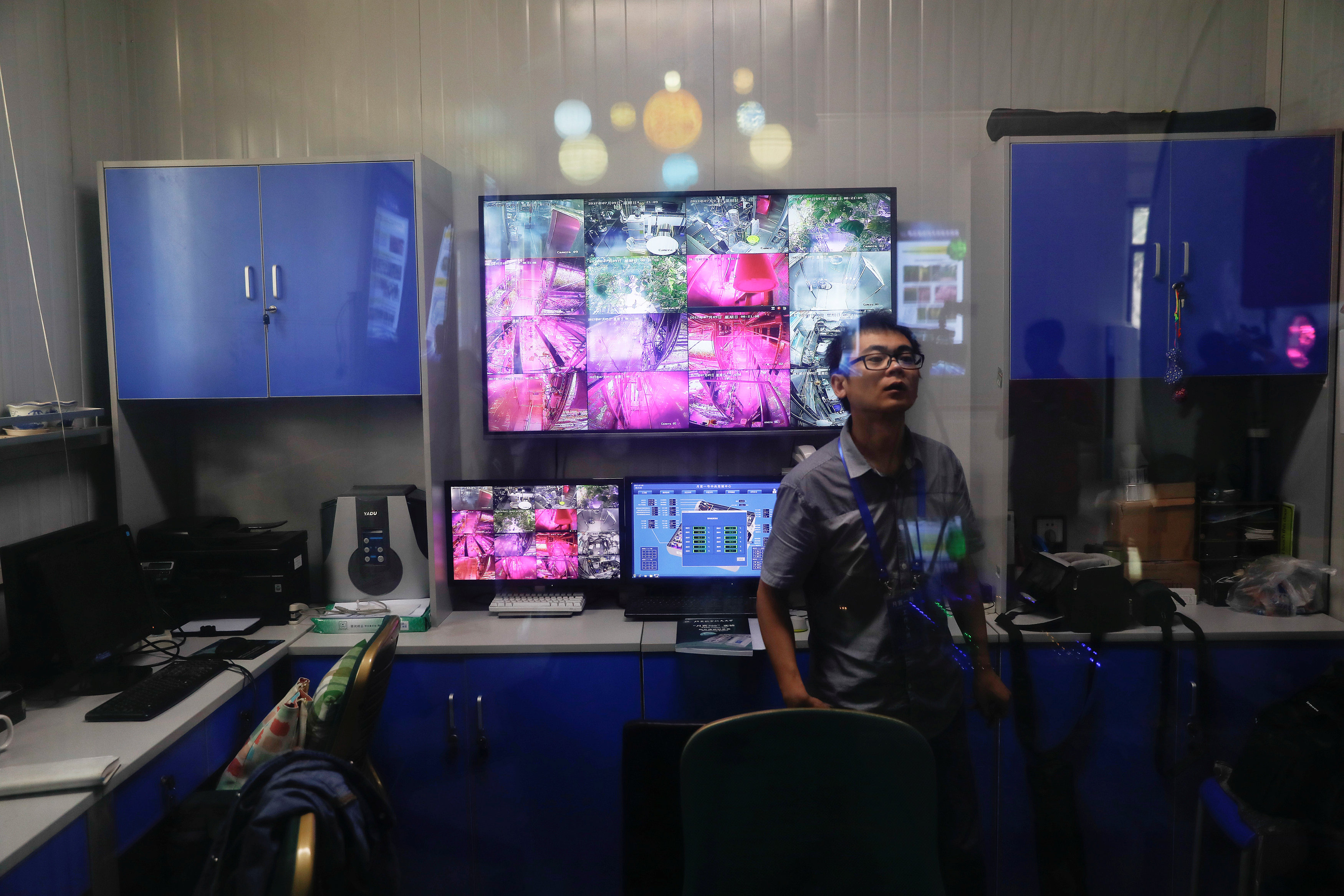
By Natalie Thomas
BEIJING (Reuters) – Sealed behind the steel doors of two bunkers in a Beijing suburb, university students are trying to find out how it feels to live in a space station on another planet, recycling everything from plant cuttings to urine.
They are part of a project aimed at creating a self-sustaining ecosystem that provides everything humans need to survive.
Four students from Beijing University of Aeronautics and Astronautics entered the Lunar Palace-1 on Sunday with the aim of living self-sufficiently for 200 days.

A volunteer answers reporters’ questions from inside a simulated space cabin in which she temporarily lives with others as a part of the scientistic Lunar Palace 365 Project, at Beihang University in Beijing, China July 9, 2017. REUTERS/Damir Sagolj
They say they are happy to act as human guinea-pigs if it means getting closer to their dream of becoming astronauts.
“I’ll get so much out of this,” Liu Guanghui, a PhD student, who entered the bunker on Sunday, said. “It’s truly a different life experience.”
President Xi Jinping wants China to become a global power in space exploration, with plans to send the first probe to the dark side of the moon by 2018 and to put astronauts on the moon by 2036. The Lunar Palace 365 experiment may allow them to stay there for extended periods.
For Liu Hong, a professor at Beijing University of Aeronautics and Astronautics and the project’s principal architect, said everything needed for human survival had been carefully calculated.
“We’ve designed it so the oxygen (produced by plants at the station) is exactly enough to satisfy the humans, the animals, and the organisms that break down the waste materials,” she said.
But satisfying physical needs is only one part of the experiment, Liu said. Charting the mental impact of confinement in a small space for such a long time is equally crucial.
“They can become a bit depressed,” Liu said. “If you spend a long time in this type of environment it can create some psychological problems.”

A member of staff is seen in front of screens showing inside of a simulated space cabin in which volunteers temporarily live as a part of the scientistic Lunar Palace 365 Project, at Beihang University in Beijing, China July 9, 2017. REUTERS/Damir Sagolj
Liu Hui, a student leader who participated an initial 60-day experiment at Lunar Palace-1 that finished on Sunday, said that she sometimes “felt a bit low” after a day’s work.
The project’s support team has found mapping out a specific set of daily tasks for the students is one way that helps them to remain happy.
But the 200-day group will also be tested to see how they react to living a for period of time without sunlight. The project’s team declined to elaborate.
“We did this experiment with animals… so we want to see how much impact it will have on people,” Liu, the professor, said.
(Reporting By Natalie Thomas. Editing by Jane Merriman)











